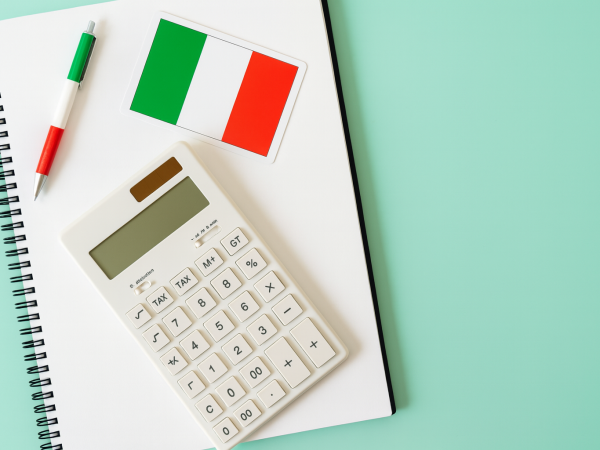Becoming a freelancer in Malta is an increasingly popular option for independent workers, whether they are expats or locals. With its sunny climate, high quality of life, and favorable tax system, Malta attracts many freelancers looking to settle in a country where balancing work and personal life is easy. This guide explores everything you need to know about establishing yourself as a freelancer in Malta, from administrative procedures to professional opportunities on the island.
1. Why Become a Freelancer in Malta ?
Working as a freelancer in Malta offers numerous advantages. The country has become a hub for tech startups, financial services, and online gaming, leading to a growing demand for qualified independent workers. Additionally, the lifestyle on the island is particularly attractive for freelancers seeking a pleasant environment while working remotely.
1.1. Exceptional Quality of Life
Malta is an island that combines natural beauty, a Mediterranean climate, and a rich cultural heritage. For freelancers who can work remotely, it’s a dream destination. You can enjoy the beaches during your free time while still having access to reliable internet for efficient work.

1.2. Attractive Tax Benefits for Freelancers
One of the main draws of Malta for freelancers is its relatively advantageous tax regime, especially compared to other European countries. Malta’s taxation system for independent workers is progressive, meaning the percentage of tax you pay increases with your income.
Here are the main tax brackets for freelancers in Malta in 2025:
- If your annual income is below €9,100, you pay no tax.
- For income between €9,101 and €14,500, the tax rate is 15%.
- Between €14,501 and €19,500, the tax rate is 25%.
- For income between €19,501 and €60,000, the tax rate remains at 25%.
- Finally, for income exceeding €60,001, the tax rate is 35%.
This progressive tax system allows freelancers to benefit from relatively low taxes on their initial income brackets. To optimize your earnings, it’s essential to understand these brackets and consider structuring your income to take advantage of the most favorable rates.
2. How to Become a Freelancer in Malta
2.1. Administrative Procedures
To become a freelancer in Malta, you’ll need to follow a few administrative steps. First, if you’re a non-EU citizen, you’ll need to obtain a residence permit. Then, you must register as a self-employed worker with JobPlus, Malta’s employment authority.
2.2. VAT Number
Another important step is obtaining a VAT number. In Malta, the standard VAT rate is 18%, but as a freelancer, you may apply reduced rates depending on the nature of your services. This is crucial for invoicing clients correctly, whether they are in Malta or within the EU.
3. Key Sectors for Freelancers in Malta
3.1. Technology and Digital Services
Malta is quickly becoming a hub for tech startups and digital service companies. Whether you’re a developer, graphic designer, or cybersecurity consultant, there are plenty of opportunities for freelancers in these sectors.
3.2. Financial Services
Malta plays a significant role in the financial services industry and hosts many companies seeking freelancers for specific projects. If you have skills in risk management, accounting, or compliance, this sector offers a great niche for freelancers.
4. Finding Clients as a Freelancer in Malta
4.1. Using Freelancing Platforms
Freelancing platforms like Fiverr or Freelancer are effective ways to find clients as a freelancer in Malta. These platforms help you connect with local and international businesses looking for talent.
4.2. Local Networking
In addition to online platforms, it’s highly recommended to participate in local networking events. Freelancers in Malta can benefit from various conferences and workshops held on the island, offering opportunities to meet potential clients and expand their professional network.
5. Challenges of Being a Freelancer in Malta
5.1. Competitive Market
Malta, while a growing market, can also be competitive in certain industries. Freelancers in digital marketing, web development, or content writing need to be creative in standing out and building a loyal client base.
5.2. Cost of Living in Malta
Although Malta is an attractive destination, the cost of living, particularly in areas like Valletta or Sliema, can be quite high. Freelancers should take this into account when setting their rates to ensure they maintain profitability.
6. Conclusion: Succeeding as a Freelancer in Malta
In conclusion, becoming a freelancer in Malta is an excellent opportunity for those seeking a better quality of life, a favorable tax environment, and opportunities in booming sectors. Whether you’re in tech, financial services, or digital marketing, the island offers a conducive environment to grow your freelancing career.
With the right tools and a well-established network, it’s entirely possible to thrive as a freelancer in Malta. Don’t hesitate to explore various platforms and participate in local events to maximize your chances of success.
So, why wait? Start your freelancing journey in Malta today and take advantage of its numerous tax benefits to grow your business in an idyllic, business-friendly environment. Malta provides all the opportunities and resources you need to succeed as an independent worker. And once you’re settled, be sure to take time to explore this unique island that combines work and exceptional quality of life.





